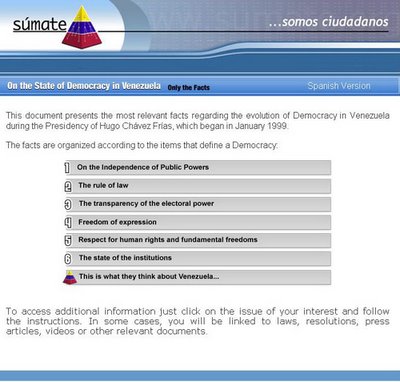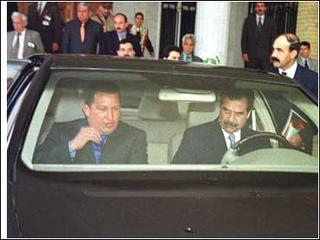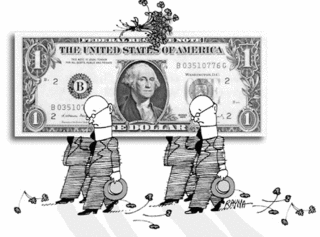The Moscow Times
Friday, October 28, 2005. Page 1.
A Desolate Place at the End of the Line
By Catherine Belton
Staff Writer
KRASNOKAMENSK, Chita Region -- A railroad crosses the desolate moonscape of this eastern Siberian region. Most days, oil tankers emblazoned with Mikhail Khodorkovsky's once-envied Yukos logo rumble through the steppe bound for China. The lucrative market on the other side of the Chinese border, which the jailed tycoon once blazed a trail to, is just hours away.
But even though the tankers still carry Khodorkovsky's logo, the oil inside them is no longer his. Ever since the Rosneft state oil company gobbled up his company's main production unit, Yuganskneftegaz, it has taken over the China route and the tankers.
As if adding insult to injury, Khodorkovsky was transported to prison in a railcar along much of the route by which he once sent that oil. The export route was one of the independent foreign economic policies he pursued, and one that may have sparked the Kremlin's anger.
After a six-day, 6,500-kilometer train journey from Moscow, alone in a windowless car, Khodorkovsky arrived on Oct. 16 at the YaG 14/10 prison camp near Krasnokamensk, a nondescript uranium-mining town just 60 kilometers from the Chinese border.
It's a forbidding place to serve out the remaining six years of a prison sentence.
Khodorkovsky and his business partner Platon Lebedev were found guilty of fraud and tax evasion in May after a highly politicized trial, and last month had their sentences reduced on appeal from nine years to eight. Lebedev is serving his sentence in a prison in the Yamal-Nenets autonomous district, near the Arctic Circle.
Krasnokamensk "is the most desolate place in the world," said Sasha, a former inmate of the YaG 14/10 camp.
"I've no idea why they sent him here. They must have wanted to hide him as far away as possible," he said, on condition that only his first name be used.
From Moscow, it's a six-hour flight to Chita and then a nine-hour drive across a barren wilderness of steppe and bone-jarring roads that turn at times into stone-filled tracks.
Krasnokamensk, a gray mass of ramshackle five-story buildings where the streets have no name and the only way to navigate is by house number, is still reeling from the influx of people who have come to visit with or report on the prison's high-profile inmate.
Ever since it became known last week that he had been sent to serve his term here, Khodorkovsky's dapper Moscow lawyers, television crews and other press reporters have jangled this sleepy company town's nerves.
Until the mid-1990s, foreigners were banned from visiting the town, and in Soviet times any outsiders had to receive special permission before they could enter.
Prison guards have erected a second barricade in front of the camp in an effort to keep inquisitive reporters at arm's length.
With a population of 58,000, Krasnokamensk has been mostly known, if at all, for its uranium mine and plant, which is still Russia's biggest producer of uranium concentrate. Once a prestigious business, the end product filled the Soviet Union's nuclear warheads and workers enjoyed higher wages and more privileges than most.
Now, however, the town and the surrounding area appear to be a wasteland for the lost dreams of the Soviet empire. Production has fallen at the mine since its heyday, and the region is littered with abandoned Army settlements that once aimed to protect the Soviet Union's borders against its fellow Communist neighbor.
The Army, these days, has been drastically downsized in line with its reduced military clout, and the road from Chita to Krasnokamensk is pockmarked with empty barracks that lie gutted and in ruins.
Locked in his railroad car, Khodorkovsky figured out where prison officials were sending him only when he heard a station loudspeaker blare out the train's route -- "Moskva-Chita," -- said Anton Drel, one of his lawyers, who visited him this week in the prison colony.
Khodorkovsky's car was attached to one of the main trains on the Trans-Siberian railroad. In Chita the car was hooked up to a separate train that took him that last stretch to Krasnokamensk, Drel said.
Another Khodorkovsky lawyer, Albert Mkrtychev, said Khodorkovsky had managed to look on the bright side upon his arrival at the camp.
"He expressed his thanks to the Russian authorities for sending him to where the Decembrists served out their terms," he said.
Many of the Decembrists, a group of army officers who revolted against Tsarist power in the 1820s, were sent into exile in Siberia -- and some to Chita -- where their wives and families joined them. Few ever made it back to the imperial capital, St. Petersburg, and many did not even survive the arduous trip into exile.
Mkrtychev and Drel arrived with Khodorkovsky's wife, Inna, on Tuesday, and were immediately let in to see him. The lawyers met with their client for about three hours in a special visiting room, which, Drel said, appeared newly refurbished for the visit.
On Wednesday, Khodorkovskaya began a long-awaited, three-day svidaniye, or meeting, with her husband. A special two-bed room is reserved for such conjugal visits.
"For two years now they have only been able to speak to each other behind glass," Mkrtychev said, adding that their previous prison meetings often lasted for only 30 to 40 minutes.
Khodorkovskaya was expected to leave the prison Friday and travel straight back to Moscow.
"Conditions seem more humane the further away we are from Moscow," Drel said.
When Drel and Mkrtychev met Khodorkovsky on Tuesday, he was dressed in the standard prison uniform of black trousers and a black long-sleeved shirt. A badge with his surname and the number 8 -- that of his otryad, or barracks -- was sewn onto the upper-left corner of his shirt.
Khodorkovsky did not have any complaints about his treatment so far.
Local lawyer Natalya Terekhova, who has visited Khodorkovsky every day, said she had heard the other inmates were treating him well. "I heard some of them got together and gave him a box of chocolates to give to his wife," she said.
But Sasha, the former inmate, who said he served three years in the camp after being convicted of dealing drugs, said there could still be nasty surprises in store for Khodorkovsky.
The amount of attention he is receiving will not make it easy for him to settle into the prison's caste system, which goes from the blatniye, or bandits, to the opushchenniye, or humiliated ones, Sasha said.
Barracks No. 8 is normally reserved for the bandits, he said. "This is the barracks for those who live against the regime, who reject the system," he said.
The barracks system appears to be part of the caste system, which starts at the top with the blatniye. On the next level are the stremyashchiyesya, or young would-be bandits. One step lower are the muzhiki, who Sasha described as prisoners who "take care of themselves and don't let themselves go."
At the bottom of the heap are the opushchenniye, who he said were no better than bums and went around cleaning up after the blatniye and bringing them cigarettes.
Barracks No. 4 is known at the camp as "the Kremlin," Sasha said.
"These are the ones who watch over the zone," he said, using the slang term for the camp's territory.
How easily Khodorkovsky is accepted by the other inmates will depend on how he behaves, Sasha said.
"If the local bandits say they should eat him, they will," he said. "He is too visible. ... He can't lie low. If the bandits order the other cons to eat him, they won't beat him up -- that's not how they do things. ... But there will be constant provocations, so that his nerves fray. And then when they snap, he'll be punished for it."
Khodorkovsky's riches and notoriety could, however, also save him. The bandits will be hoping that he will be a source of income for them, Sasha said, adding that the prison trading system involved trading cigarettes and tea for other sought-after items.
"Five packets of unfiltered cigarettes and a packet of tea will get you a pair of new trousers," Sasha said.
One of the greatest problems in the camp, he said, was the lack of work. Out of 2,500 inmates, perhaps only 500 have work sewing or planting trees. The rest, he said, just lie all day in the barracks, where the electricity is switched off from 9 a.m. to 5 p.m. to cut costs.
Disease and poor health are also major problems.
"Everyone starts to rot there," he said.
Sores on prisoners' legs or elsewhere are another common ailment -- often leaving the skin discolored after they heal.
"It could be from the change in climate, or it could be the lack of vitamins," Sasha said. The food, he said, is awful, with most of the bread made by the inmates in the prison's bakery turning out only half-cooked.
Tuberculosis, which afflicts many prisoners in Russian jails, is also a big danger, with about 10 inmates in each barracks suffering from the disease, he said, and measures to combat it are inadequate.
Doctors visit the prison to carry out chest X-rays and check for tuberculosis symptoms only once per year, by which time the disease has taken hold in most cases, Sasha said. The sickest prisoners are transferred to Chita.
A prison official, speaking on condition of anonymity, said the camp was no worse and no better than any other in Russia.
Valery Zaitsev, spokesman for the Federal Prison Service, said Thursday that he did not know the number of tuberculosis cases at the Krasnokamensk prison colony. Zaitsev referred inquiries to the prison service in the Chita region, which could not be immediately reached for comment.
Drel said Khodorkovsky had not said anything about whether anyone was suffering from tuberculosis in his dormitory, in which about 100 other inmates are housed.
Khodorkovsky has said he intends to spend his time in prison writing a dissertation. Drel said Wednesday that it would likely be devoted to the subject of federalism.
When asked in an interview Thursday about conditions at the prison, Krasnokamensk's mayor, German Kolov, said the camp came under the jurisdiction of the Justice Ministry, not of the local authorities.
He denied press reports that inmates in the colony had once been forced to work in the uranium mines or that radiation levels in the town and around the camp exceeded permitted limits.
Kolov said his town had one of the lowest infant mortality rates in the Chita region.
He said he had been caught off guard by the arrival of Khodorkovsky, but that he and other town officials were trying to make provisions for the influx of visitors and that he had personally arranged a hotel room for Inna Khodorkovsky.
Kolov declined to comment on the politics behind Khodorkovsky being sent to Chita, but he said with a smile, "This region has always played a key role in the nation's history, and I'm sure it will continue to do so."
Staff Writer Carl Schreck contributed to this report from Moscow.
http://www.themoscowtimes.com/stories/2005/10/28/001.html
© Copyright 2005 The Moscow Times. All rights reserved









